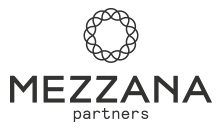Few business leaders have ever faced a situation as overwhelming, unpredictable and serious as the current COVID pandemic. Many people feel scared and anxious, and many businesses face existential threats. These conditions are hard to navigate, yet leaders need to provide clarity, confidence and direction.
We believe one of the most useful guides is the Cynefin framework, developed by David Snowden and Mary Boone. It can help leaders assess their specific context and choose appropriate leadership strategies as conditions vary and change. Cynefin describes five different contexts:
Simple and complicated contexts assume an ordered universe, where cause-and-effect relationships are perceptible, and right answers can be determined based on the facts and by drawing on past experience.
Complex and chaotic contexts are unordered—there is no immediately apparent relationship between cause and effect, and the way forward is determined based on emerging patterns. The ordered world is the world of fact-based management; the unordered world represents pattern-based management.
The very nature of the fifth context—disorder—makes it particularly difficult to recognize when one is in it. Here, multiple perspectives jostle for prominence, factional leaders argue with one another, and cacophony rules.
As we write this blog (late April 2020), we get the sense that many of our clients are experiencing a transition from chaos to complexity. The immediate urgency to move into lockdown has eased; those who can work at home are now doing so and those who will be furloughed have stepped down. For the first time in several weeks, leaders are able to lift their heads from the immediate demands of crisis management and dare to think about the future.
As they look ahead, leaders need to recognise that the rules have changed, and they are facing a more complex world than existed in early March. This requires a shift from the rapid decision making and quick action needed to manage the initial crisis (chaos in Cynefin terms), to a phase where there’s a little more time to think, gather information and weigh options.
We suggest this is a phase of complexity, uncharted territory with no tried and tested solutions. Experts will disagree and may offer contradictory advice – for example, a current hotly debated topic is whether we should be wearing face masks. The wisest approach is to look for relevant patterns in the behaviour of your people, customers and stakeholders. What themes are emerging? Do you see any trends? Any new relationships between your actions and the response of your team?
The next step is to consider your options as experiments, that you can deploy in the safest possible way in order to learn more about how people and systems respond. We notice the need for experimentation in the current discourse about the UK’s path from lockdown, with suggestions that the response may well vary depending on factors like geography (the Shetland Islands compared to London), industry sector, or availability of testing resources. Likewise, the multiple, simultaneous attempts to develop a vaccine, rather than rely on a single solution.
Using small, safe experiments helps you learn about your business reality, as opposed to what you used to know, or what the experts predict. You can then start to reinforce the actions that are helpful and reduce the actions that are unhelpful. By doing so your context slowly moves from complex to complicated. You are developing you own expertise and systemic understanding, gaining traction as you help your people evolve and adapt.
And here lies the opportunity, because we can never fully go back to where we were pre-COVID. Whilst many people may not like being forced to work from home while they look after young children, homeworking will remain an option in the future. Whilst we might hanker after the ‘joys’ of business travel, we know that it’s no longer essential and that videoconferencing works.
Just as well, given that the climate crisis still awaits our full attention. We have all been forced to adapt, and human resilience and ingenuity has enabled us to do so. The leaders and businesses that will thrive in the future will be the ones that re-imagine themselves into the new, emerging future, taking the best of the past but also leaving much behind.





